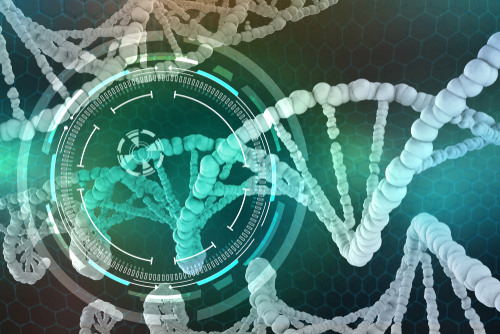Mutations in the MUC16 gene may help predict disease outcome and provide treatment guidance for gastric cancer patients, researchers suggest.
These mutations are also linked to a higher mutational burden, which may increase cancer cells’ susceptibility to immunotherapies.
Findings were reported in the study, “Association of MUC16 Mutation With Tumor Mutation Load and Outcomes in Patients With Gastric Cancer,” published in JAMA Oncology.
Gastric cancer is the leading cause of cancer-related death worldwide. Several studies have demonstrated that the genetics of gastric cancer can vary significantly between patients, with variable tumor mutation loads.
Mutations in the MUC16 gene, also known as cancer antigen 125, or CA-125, are very common in gastric cancer and other types of cancers. However, their relation to tumor mutation load and prognostic value in gastric cancer patients was not clear.
Researchers at Wake Forest Baptist Medical Center in North Carolina and their collaborators at the Tianjin Medical University Cancer Institute and Hospital in China have now evaluated the effect of MUC16 mutations on gastric cancer patients.
The team analyzed the mutational status of MUC16 in tissue samples collected from 437 gastric cancer patients in the National Institutes of Health’s Cancer Genome Atlas.
They found that MUC16 was one of the most frequently mutated genes, affecting 168 patients (38.4%). Of these patients, 73 had additional genetic mutations in other genes mainly related to maintenance of genomic integrity, DNA replication proofreading, DNA repair mechanisms, and immune system response.
Samples with MUC16 mutations also had a higher mutational burden, with a 1.87 times higher chance of having additional mutations.
“Tumors with higher tumor mutation loads tend to be more responsive to immunotherapy,” Wei Zhang, PhD, a professor at Wake Forest, who is the article’s lead author and a fellow of the National Foundation for Cancer Research, said in a press release.
In terms of survival, patients with an MUC16 mutation lived longer than those with the unaltered gene. The presence of MUC16 mutations were associated with a 39% increase in survival.
To further confirm these findings, the team repeated these analyses on a group of 256 Asian patients with gastric cancer.
Similar to the previous results, MUC16 was also one of the most frequently mutated genes. It was mutated in 57 patients (22.3%), linked to a significantly higher tumor mutation load and better survival outcomes.
Samples that carried an MUC16 mutation had increased activation of biomarkers of immune response, antigen processing, cell cycle checkpoints, and DNA replication and repair.
The researchers believe that these results suggest the use of “therapeutic regimens to abrogate immune inhibition, such as immune checkpoint blockade, may be beneficial for patients with gastric cancer who have MUC16 mutations.”


